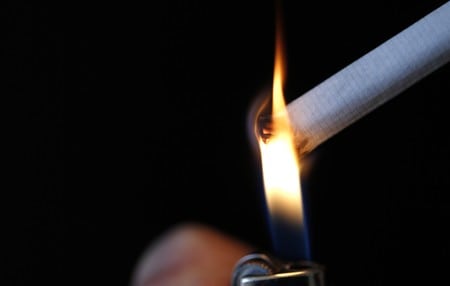By Lisa Rapaport
(Reuters Health) – Smokers who have a stroke are much more likely to have another one if they don’t quit or at least cut back, a Chinese study suggests.
Smoking has long been linked to an increased risk of cardiovascular disease and serious cardiac events like heart attacks and strokes. But the new study sheds light on how smoking influences the risk of a second stroke in patients who already had one.
Among the 3,069 stroke survivors in the study, 1,475, or 48 percent, were current smokers and another nine percent were former smokers.
Among the current smokers, 908, or 62 percent, managed to quit within a few months after their stroke.
As expected, smokers had a higher risk of a second stroke than people who never smoked at all, even if they managed to quit after their first stroke. However, smokers who did quit after that first stroke were 29 percent less likely to have a second one than people who kept smoking.
“Smoking after a stroke has the same effects on the body as before the first stroke,” said Allan Hackshaw, a researcher at University College London in the U.K. who wasn’t involved in the study.
“It can lead to problems with blood flow in the brain, and contribute to clots being formed in the blood vessels – and either of these increase the chance of having a stroke,” Hackshaw said by email. “Cutting back would reduce the risk a bit, but the study shows that quitting completely has a large reduction in the risk of a second stroke.”
All of the patients in the study survived for at least three months after a stroke.
Smokers’ risk of a repeat stroke rose with the number of daily cigarettes they smoked.
Compared to nonsmokers, current smokers who had up 20 cigarettes a day were 68 percent more likely to have a repeat stroke, while the risk was almost triple for smokers who had more than 40 cigarettes a day.
Current smokers tended to be younger and less likely to have conditions like high blood pressure, heart rhythm disorders or coronary heart disease than nonsmokers. They were also more likely to be heavy drinkers than nonsmokers.
The study wasn’t a controlled experiment designed to prove whether or how smoking causes repeat strokes.
One limitation of the study is the potential for smokers to go through other lifestyle changes when they quit – like improving eating and exercise habits – that contributed to a reduced stroke risk, Dr. Gelin Xu of Nanjing Medical University in Jiangsu, China, and colleagues note in the Journal of the American Heart Association. Xu didn’t respond to requests for comment.
Even so, the results add to a large body of evidence linking smoking cessation to a reduced risk of stroke, and continued smoking to an elevated stroke risk, said Dr. Michael Hill of the Cumming School of Medicine at the University of Calgary in Canada.
“Smoking is just about the worst possible thing you can do for your health,” Hill, who wasn’t involved in the study, said by email. “Yes, quitting helps a lot, but it is hard because it is addictive.”
SOURCE: http://bit.ly/2LRke0a Journal of the American Heart Association, online April 16, 2019.


